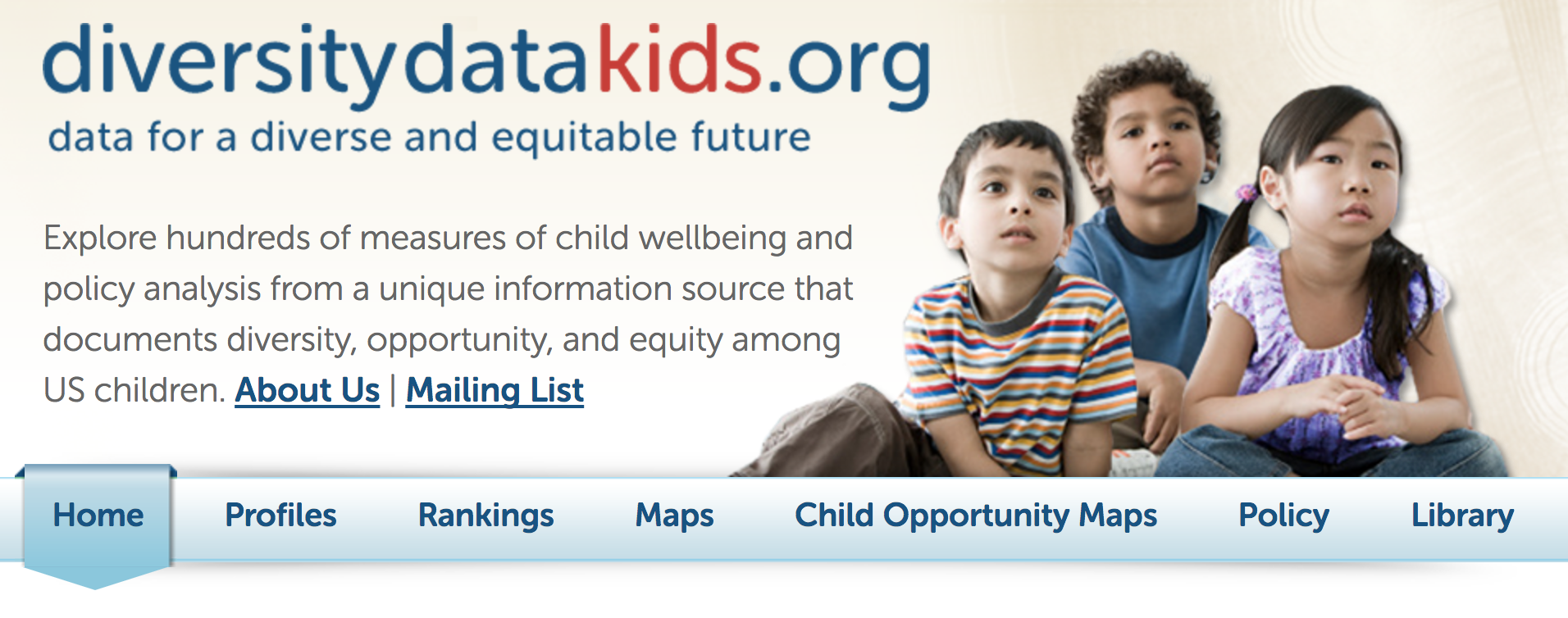
The Institute for Child, Youth and Family Policy (ICYFP) at Heller has been awarded a three-year, $3.07 million grant from the W.K. Kellogg Foundation to build the next generation of diversitydatakids.org, its pioneering research project to monitor and analyze whether children of all racial/ethnic groups have adequate and equitable opportunities for healthy development.
The grant will allow the ICYFP team to deepen their work in five areas: significantly expanding their innovative database, which feeds all policy research work; developing new equity-focused analysis to highlight the state of wellbeing and equity among U.S. children; updating their signature indicators, including the Child Opportunity Index; enhancing their data storytelling and visualization capacity to improve the reach of their analysis; and increasing the project’s impact through targeted outreach and dissemination efforts.
“Our overarching objective is to inject actionable, equity-focused data, analysis and research evidence into the narratives and policy decisions that affect U.S. children, from the national to the neighborhood level,” says ICYFP Director Dolores Acevedo-Garcia.
While the public and policymakers have access to increasing amounts of data, Acevedo-Garcia says local leaders often lack the resources to generate policy analyses from the vast information that surrounds them. Diversitydatakids.org directly addresses the widespread need for more accessible, usable information on issues of child equity, and the need for a centralized information system that monitors progress and holds decision makers accountable.
The current version of diversitydatakids.org, which was built over seven years, offers multi-layered indicators to illuminate the structural factors that impact child wellbeing and equity (such as residential segregation). In addition, its unique, racial-equity policy indicators (for example, parental eligibility for medical and family leave) highlight the gaps in access and quality of programs that influence children and their families.
The data tool has been used by both academic and practitioner research groups across the country, including teams from Boston Medical Center’s Vital Village Network, Cincinnati Children’s Hospital and the Chicago Department of Public Health.
“Receiving this grant from the Kellogg Foundation represents a recognition of the increasing impact and visibility of our work, as well as of its potential to keep informing academic and policy research about racial/ethnic equity among children.” Acevedo-Garcia says. “In the present national climate, we feel particularly energized and compelled to fulfill our mission. We have always shared with the Kellogg Foundation a commitment to highlight the great value of our country's increasing diversity, and our collective responsibility to offer opportunities to all children.”
